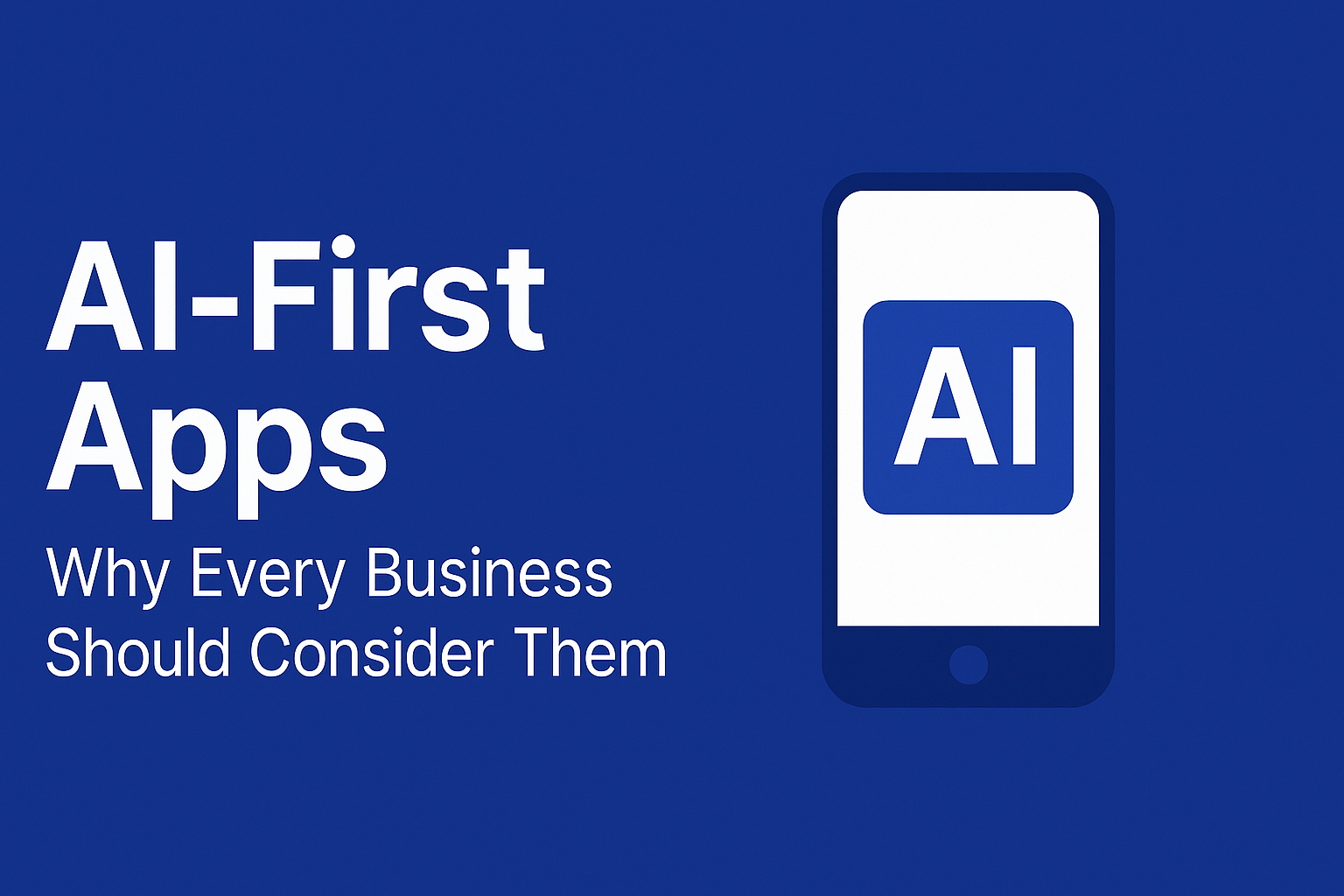It is a time when AI is no longer a bonus in mobile applications, but a necessity. Artificial intelligence is a smart feature in apps that makes applications more futuristic. We have officially entered the era of AI in mobile apps, which makes them more innovative, intuitive, and efficient.
Many businesses and mobile app development companies consider developing mobile apps with AI at their core. When you create applications with AI as their foundation, rather than as an add-on feature, they are known as AI-first apps. We’ll look more into why AI-first apps are creating a buzz and why businesses should consider them –
Why AI-First Apps are the ‘Revolution of the Year’
AI-first apps are developed around natural language processing, machine learning, and predictive intelligence at the core of their mobile app architecture. Developers create an AI-first app with AI at its foundation, unlike traditional apps, where developers add AI features separately.
You build the application from the ground app to get a true AI-first application. AI-first apps are not only responding to users, but they are continuously adapting, learning and anticipating. For example, the AI productivity tools can help you automate tasks even before you ask. In addition, AI chatbots can understand user intent proactively as compared to actual human agents.
AI-first applications are changing the way users interact and engage with mobile apps. They offer significant and measurable business advantages through data-driven optimisation and intelligent automation. Businesses can leverage the automated workflows of AI-first apps to reduce overhead costs and enable predictive resource management to conduct operations smoothly. Businesses can gain insights into the changing market trends and patterns. They can also evolve their marketing strategies and customer support approaches based on changing customer needs.
How AI-First Apps are Different From Traditional Mobile Apps
We will understand the paradigm shift from traditional mobile apps to AI-first apps. Let’s understand how they are different from each other.
- Traditional mobile applications work on a relational database to store and process structured data. However, in AI first applications, it uses a vector database for semantic search capacity and similarity.
- Traditional mobile applications use a CPU-optimised infrastructure, while AI-first applications have GPU/TPU clusters to handle machine learning workload.
- Traditional applications provide static data representation to users, while there are neural embeddings in the AI-first mobile apps for contextual understanding.
- Error handling in traditional mobile apps has simply been try and catch, while AI-first applications provide fallback systems and model accuracy monitoring. Accurate error handling in AI-first apps results in optimised performance of AI models.
To help you understand the differences in layman’s terms, let’s look at the broad comparison between the two in terms of functionality, adaptability and user experience. In traditional mobile apps, the business logic works on predefined rules and user input through which it delivers functionality. Developers create a static functionality for all users in mind.
For example, everything you see on your food delivery app interface is the same as what other customers see while placing an order online. In AI-first food delivery apps, the user interface according to what they have ordered in the past, liked or interacted with. It creates a more personalised experience for users that enhances customer satisfaction and loyalty. AI-first mobile apps use machine learning and artificial intelligence to create more personalised, dynamic and adaptive experiences for users.
The traditional mobile applications offer a one-size-fits-all approach. Meanwhile, AI-first mobile applications tailor the user experience by providing them personalised recommendations and intuitive output. It can adapt the user interface and functionality to individual user preferences and needs. The traditional mobile apps did not adapt to changing user behaviour, but now, after the advent of AI, apps have become smarter, and they can adapt and learn from user behaviour effectively.
Why Businesses Should Consider AI-First Apps
We have witnessed the evolution of mobile applications, which have turned from a static, rule-based interface into a dynamic and intelligent assistant. This is mainly due to AI integration in mobile apps. Developers build AI-first apps by leveraging computer vision, machine learning, natural language processing and contextual intelligence. AI-first apps deliver personalised experiences by learning, adapting and evolving continuously.
Adding some AI functionality like an AI chatbot on top of the traditional mobile app is not the same as developing an AI-first app from scratch. For example, in the healthcare industry, developers created a symptom checker AI-first application which provides predictive patient insights, updates information in real time and maintains automated clinical documentation. Similarly, in the e-commerce industry, AI-first apps provide inventory forecasting, have smart pricing engines and provide AI-driven recommendations to users.
The platforms like Firebase and Vertex AI provide scalable machine learning model deployment. Developers can enhance the contextual reasoning in the application by integrating the Gemini API. Businesses need to shift their focus towards AI-first applications, which have predictive capabilities, a conversational interface, contextual awareness, and behavioural adaptation capacity.
It means that the smart AI-first applications will be able to interpret user habits, location, device usage, as well as time of day. The applications will become smart to learn from historical patterns to predict future actions of users. These factors create a personalised experience for users by evolving continuously based on user engagement.
To Sum Up
Leveraging an AI-first app will not replace your people, but it will help them make smarter decisions, foster better collaboration, enable faster execution and create future-ready systems. AI-first apps are the next big thing in the market, and businesses shouldn’t be left behind. Businesses are adopting AI-first apps to meet the changing user needs and provide ultimate user experiences to customers.
AI-first apps provide more iterative journeys as compared to the linear workflows of traditional mobile apps. Your business needs smart and innovative solutions like AI-first apps. You can get a consultation from our experts at VerveLogic, a mobile app development company in California, for a personalised strategy for your business.
(Visited 1 times, 1 visits today)

دیدگاهتان را بنویسید